
CHILD & FAMILY THERAPY IN PASADENA, CA
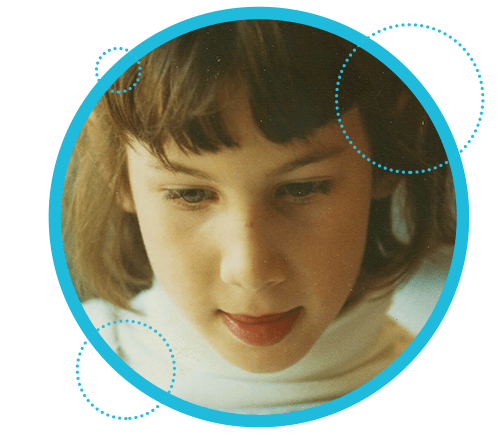
We live in a time that challenges the idea of the traditional family.
Bren M. Chasse, LMFT of Anchor Psychotherapy is a Therapist in Pasadena working with expertise in child & family therapy. Today, family structures are both dynamic and complex. Unfortunately, with a complex design, often come complex challenges.
I believe good mental health is essential to the success of any family composition. In effect, mental wellness begins with our ability to weave a thread through the defining moments we experience in our lives. We do this to create a coherent narrative.
Working With the Family Unit
Effectively working with families requires an appreciation and understanding of the fact that each of us brings with us to every interaction all our past experiences. We need to understand the fundamental belief system that is born from those experiences.
In other words, the family unit is both a functioning system and an assembly of individuals that have unique needs. There are goals, beliefs, thoughts, feelings, and pasts. All of these play a role in how we communicate, interact, and connect with each other.
The Impact of Trauma on Children & Families
When an individual experiences a traumatic event, the impact of that trauma is experienced not only by the primary victim, but by the entire family. The experience of trauma can be additionally complicated if the primary victim is a child.
Expert in Therapy for Childhood Trauma
I am an expert in the treatment of psychological trauma. I work not only with minor children that have experienced tragedy, but also work with their families. I work to help everyone process their feelings, make meaning of their experience, bear witness for the primary victim. We strive to develop the ability to move forward as a stronger family unit.
Chasse, B. M. (2021, March 1). The art of effective co-parenting. GoodTherapy. https://www.goodtherapy.org/blog/Art-of-Effective-Coparenting
Chasse, B. M. (2020, April 13). School-Based Violence: A call to action for trauma-informed care. GoodTherapy. https://www.goodtherapy.org/blog/school-based-violence-a-call-to-action-for-trauma-informed-care-0414204
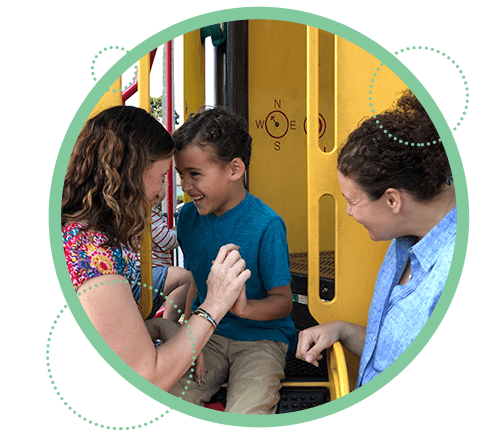
Family Reunification Services
The effects of extended parental absence can negatively impact a child’s development, capacity for healthy attachment, and overall family dynamics. Unfortunately, the younger the child is at the time of separation, often the more devastating the consequences. Family reunification services work with children and their parents in an effort to process feelings and issues stemming from a separation. Through these services, we focus on re-establishing the bond between parent and child.
The Therapist’s Role in Reunification
As the therapist, my primary goal is to re-introduce a parent back into a child’s life in a safe, supportive, and clinically appropriate manner. The process of family reunification can be stressful for all parties involved. Yet, it can only be effective if all parties are fully committed to the process. My goal is to provide adequate support for all family members so as to allow for each family member to engage fully in the services.
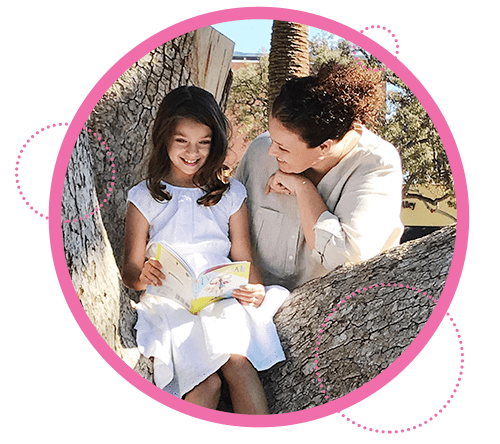
Child Advocacy
One important role of any effective child and family therapist is the ability to advocate for children. I am passionate about this role. Child advocacy typically occurs in either a legal or educational setting. I have extensive experience working in both.
Working Within the Court System
I have more than a decade of experience working with court-involved families and working collaboratively with the Department of Child and Family Services (DCFS). This is in an effort to ensure that the interests of children affected by divorce, conflict, violence, abuse and neglect, and trauma, are not lost in the legal shuffle. I have a comprehensive understanding of the family court system. As well as being consistently successful in supporting children and families through difficult cases and family reunification efforts. I have experience testifying in high-profile cases. I am also sensitive to the unique challenges inherent in such cases.
Academic and School Support
The impact of mental health challenges on the academic world of a child can be significant. If mishandled, it can have devastating consequences on a child’s academic trajectory. Additionally, it’s not uncommon for a child’s behavior in the classroom to be misinterpreted by well-meaning educators or school staff.
For this reason, it is important that child and family therapists work collaboratively with a child’s school to determine how to best meet the needs of each individual student. Including a psychotherapist in Student Success Team (SST) meetings, Individualized Education Plans (IEP), and 504 Plan development, ensures the goals set for your child are appropriate, achievable, and sensitive to the individual needs of that child. I routinely collaborate with local schools to provide support to children and their parents when a child requires additional support in order to be successful in their academic setting.
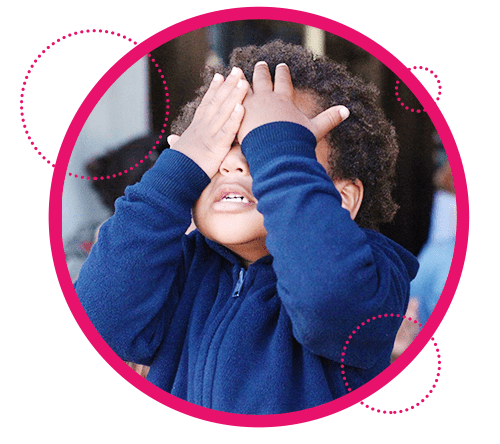
Intimate Partner Violence
High-conflict families are at an elevated risk for intimate partner violence, child abuse, and child neglect. I have more than 15 years of experience working with both survivors and aggressors. I have a comprehensive understanding of the cycle of violence. As well as an understanding of the way in which power and control are established. This has a profound impact violence has on a developing child. Specifically, the experience of intimate partner violence often casts a long, dark shadow over the lives of developing children, and leaves behind profound but invisible scars that can endure well into adulthood.
The experience of intimate partner violence within the home can shatter a child’s sense of security, safety, and trust—the very pillars upon which healthy development relies. Children that experience violence in their homes are forced to navigate a landscape of fear, confusion, and emotional distress, as they attempt to negotiate an environment that feels much like a war zone. These experiences help to shape the lens through which they experience the world. Instead of viewing themselves as autonomous beings that can influence their environment in a positive way, that lens is replaced with a harsh reality where the people they love most inflict pain upon one another. Such a toxic environment not only results in psychological wounds but also disrupts crucial developmental milestones and hinders cognitive, emotional, physical health, and social growth. Research has consistently shown that children exposed to intimate partner violence are at a heightened risk of experiencing a range of adverse outcomes, including but not limited to, anxiety, depression, behavioral issues, and academic struggles. The impact of such exposure reverberates far beyond the confines of childhood, often perpetuating a cycle of violence that pervades future relationships and perpetuates intergenerational trauma. Early intervention for developing children that have experienced intimate partner violence demands multifaceted interventions aimed at stabilizing the family system, safeguarding their well-being, nurturing resilience, and fostering healing.
Coercive Control
Coercive control, originally defined by Evan Stark, Ph.D., is a unique form of intimate partner violence. It is defined as a form of intimate terrorism or mental torture encompassed by harmful conduct that subordinates the will of another through violence, intimidate, intrusiveness, and control. Specifically, coercive control consists of actions over a period of time that establish a pattern that involves behavior that has the primary objective of restricting someone’s freedom and autonomy. It is pervasive in nature and the effects extend far beyond any visible scars. This form of psychological manipulation systematically erodes an individual’s autonomy, self-esteem, economic independence, social relationships, physical health and agency, coercing them into submission through a relentless cycle of intimidation, isolation, and degradation. The effects can penetrate virtually every facet of a person’s life, infiltrating their thoughts, emotions, and decisions, until they are trapped in a suffocating prison of fear and dependency, making it difficult for them to identify a path toward independence from their abuser.
The mental health effects of coercive control are profound and multifaceted, often manifesting in a complex array of psychological symptoms that can endure long after the abusive relationship has ended. Victims of coercive control frequently experience intense feelings of anxiety, constantly living in fear of the perpetrator’s unpredictable reactions and escalating violence. They may also grapple with chronic depression, as the relentless onslaught of manipulation and gaslighting chips away at their sense of self-worth and purpose, leaving them feeling hopeless and defeated. Post-traumatic stress disorder (PTSD) is another common consequence, with survivors plagued by intrusive memories, flashbacks, and hypervigilance long after they have escaped the abusive environment. Additionally, the coercive control can induce feelings of shame, guilt, and self-blame, as victims internalize the distorted narratives perpetuated by their abusers, further exacerbating their psychological distress. These mental health challenges often intersect with physical health issues, such as insomnia, headaches, and gastrointestinal issues, as the cumulative toll of the abuse destabilizes the victim and chips away at their overall well-being. The scars left behind by coercive control are deep, demanding comprehensive support and intervention to empower survivors to reclaim their autonomy, help them develop a sense of self, break the cycle of abuse, and restore their sense of dignity and freedom.
Empowering Clients
In addition to the importance of providing psychoeducation, my clinical work is rooted in empowering my clients. I honor that my clients are the experts on their own lives. In addition, I am sensitive to the fact that breaking the cycle of violence takes time. With my support, we are able to assess for safety together, explore relational goals, and develop a strong sense of self, which is rooted in one’s own personal power.
Therapy for Children 0-5 Years Old
Often infant or child mental health is dismissed with the assumption that young children are resilient. People mistakenly believe they will simply bounce back from any significant stressors they may encounter early in life. While children are often incredibly resilient, they can still be deeply impacted by difficult life experiences. As a result, it’s not uncommon for children to need additional support in order to process those events.
Early Intervention is Key to Mental Health Development
The mental health of a young child helps to inform and guide their development. Because of this, early intervention is all the more critical for children of this age. The social-emotional development of your child during this critical age period will help to inform your child’s ability to engage in a secure attachment and healthy relationships across the lifespan. So, the stakes are high for our little humans, and it’s important we meet them where they are!
Specially Trained to Provide Therapy for Children Ages 0-5
Working with the 0-5 population requires not only specialized training, but requires a fundamental understanding and appreciation for the age and stage limitations of such a young child. Because young children often don’t have the language to explain what they are thinking or how they are feeling, they will show us their internal word through their play. As a 0-5 clinician, it’s my responsibility to enter into that world, with invitation from the child, and support their process, increase their resilience, and facilitate healing.
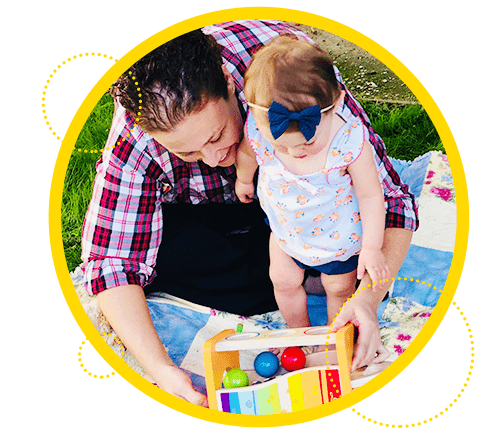
Chasse, B. M. (2020, April 10). Breastfeeding vs. Formula: Learning what works for you and your baby. GoodTherapy. https://www.goodtherapy.org/blog/breastfeeding-vs-formula-learning-what-works-for-you-and-your-baby-0410204
How to Begin Therapy for Children in Los Angeles, CA
If your child is struggling to process the events of a childhood trauma, Anchor Psychotherapy, Inc. is here to help both children and families. We offer a wide variety of services related to therapy for children and family support including Therapy for Children, Child Advcacy Services, and Family Reunification Services. Follow the steps below to get started on your journey to healing.
- Get to know more about me and my therapy practice here.
- Fill out our easy and convenient online contact form.
- Begin your journey toward healing.
Other Mental Health Services Offered at Anchor Psychotherapy, Inc. in Los Angeles
In addition to child, family, and court services we offer a wide variety of mental health services to help you at any stage of your mental health journey. This includes trauma and EMDR, child and family services including high conflict divorce and court-involved families, counseling for couples and polycules, LGBTQ+ services, and group therapy.
